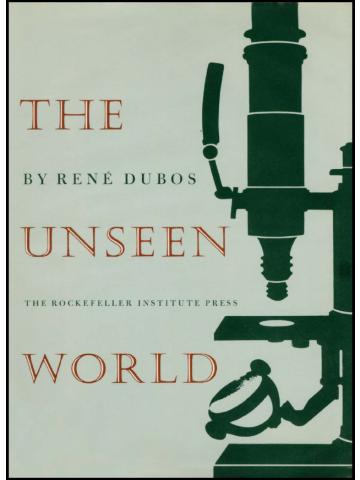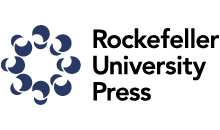
ISBN: 9780874700381
The world seen through the looking glass—the powerful lens—of a distinguished microbiologist is a stranger world than Lewis Carroll made. It is also infinitely more dramatic when the man behind the microscope is René Dubos, whose view of microbes—and of men— is illumined by a brilliant creativity and an informed humanity.
In The Unseen World, Professor Dubos clarifies for scientist and layman alike the dynamic relationships between microbes and all other forms of life. This book, like his work in the laboratory, demonstrates the progress that can be achieved when science and the humanities work together to explore and master the forces shaping man’s environment. The Unseen World is a notable contribution to civilization.
Looking over the shoulder of Dr. Dubos, the reader notes profound resemblances between microbe and man. With him we marvel at the almost limitless variety in form and structure of cells and viruses. We see microbes as chemical machines and, following the development of the germ theory of disease, watch as microbial activity is manipulated to cure and control the physical scourges of mankind. Before our eyes, the microbe is domesticated and new strains created. With Dr. Dubos, we understand the importance of certain biological partnerships in which microorganisms are involved with plants, with each other, and—not least—with man.
The world of microbiology is a fascinating one. The story of the development of the science of microbiology is equally fascinating. Dr. Dubos introduces us to Antony van Leeuwenhoek, who fashioned his own microscopes 250 years ago and was the first man to see bacteria. Another father of microbiology whom we meet through Dr. Dubos is Louis Pasteur, who proved that microbes exist all around us, that they do not generate spontaneously, that they play an essential role in the economy of nature and in the everyday life of man. There was also Joseph Lister, the great English surgeon, and Robert Koch, the illustrious German microbe hunter. With their stories, the story of microbiology further unfolds.
And when the story is done, we have Dr. Dubos’ conclusions about science as a way of life. The study of microorganisms, he finds, supports moral law by showing that the evolution of biological relationships is toward tolerance and mutual aid. The final note is an affirmative one: through intellectual pursuits, mankind can and does grow continuously into a higher form of life.
The clarity of Dr. Dubos’ text is echoed in the 97 illustrations carefully integrated with the story he tells. Photographs of microbes and viruses are superb, as beautiful as they are useful. Color brightens the book throughout. Altogether, The Unseen World is a distinguished setting for a distinguished work.11
During his lifetime, René Dubos held more than 35 honorary degrees (including three honorary MDs) from universities in this country, Canada, and abroad. As a microbiologist and experimental pathologist, he first demonstrated—some 40 years ago—that germ-fighting drugs can be extracted from microbes. Also an award-winning author, his lectures and books have alerted an international audience to the physico-chemical, biological, and social effects that environmental forces exert on all forms of life. This interest in the effects of the total environment placed Dr. Dubos in the forefront of ecological studies on both the sociomedical problems of underprivileged communities and the results of affluence in industrialized countries. His more than 20 books have been translated into many languages. So Human an Animal won the Pulitzer Prize in 1969; Beast or Angel: Choices that Make Us Human was published in 1974 to wide acclaim.

